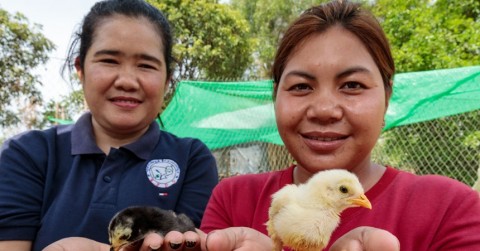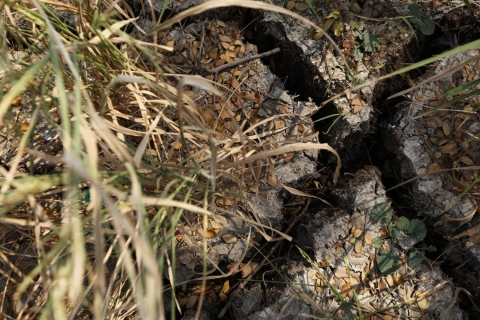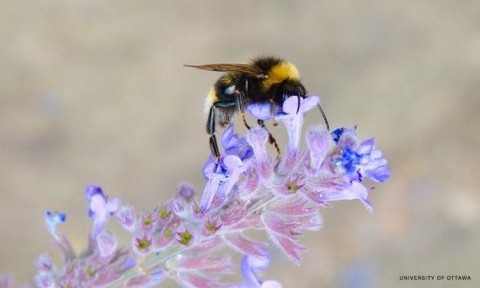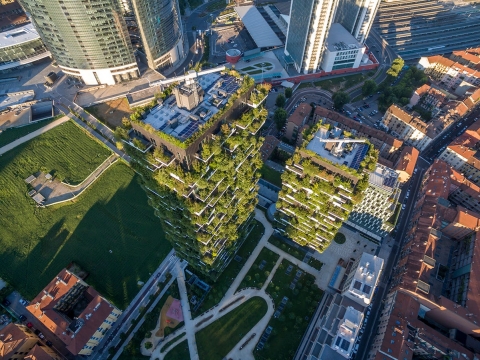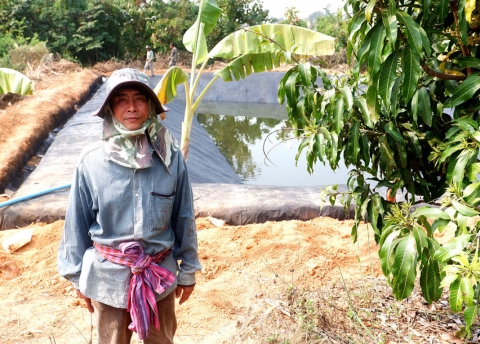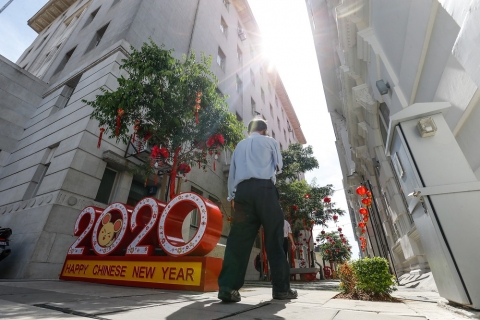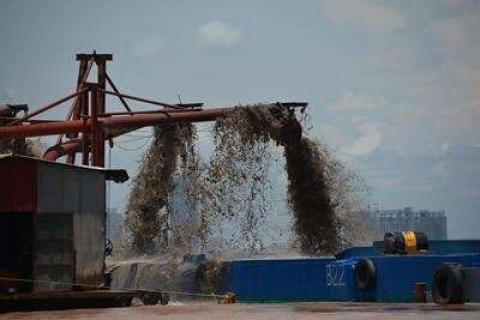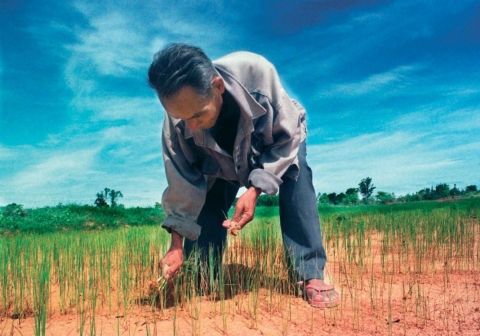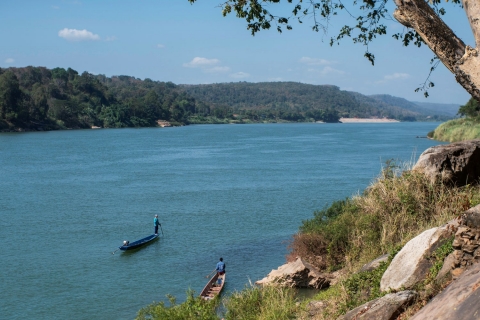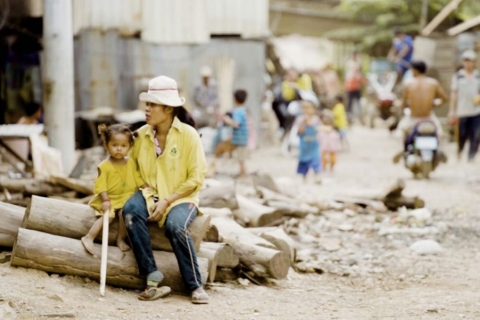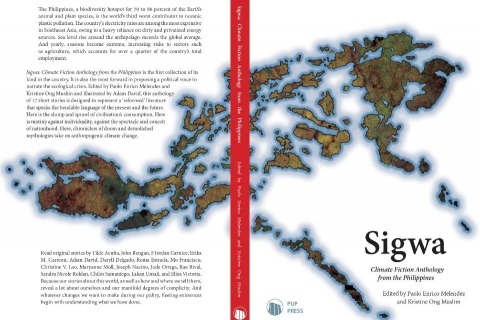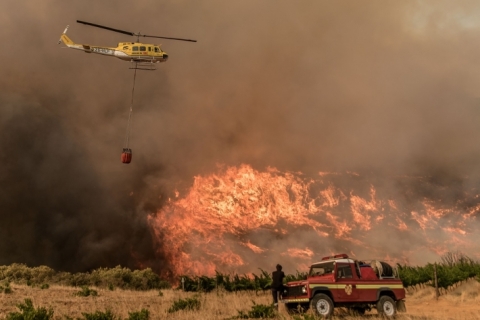- You are here:
- News & Events

- Harvested News
Harvested News
Published on 9 March 2020 Cambodia
In Cambodia, where 1 in 8 people live below the poverty line, the search for work can often separate families. When Phany joined a Caritas supported program, gaining skills in productive farming and irrigation techniques, her life was transformed. Her community learned to work together for better water management, to combat drought and maintain crops year-round. Now Phany is reunited with her daughter because she…
Published on 17 February 2020 Thailand
Thailand has been hit with what may be its worst drought in 40 years, pummelling sugar production in one of the world's biggest exporters of the sweetener. Sugar output may tumble about 30% to 9 million-10 million tonnes, while cane output is forecast to fall below 90 million tonnes from about 130 million in the previous season because of the dry weather, according to an…
Published on 17 February 2020 Malaysia
Minister of Energy, Science, Technology, Environment, and Climate Change Yeo Bee Yin today reiterated that Malaysia would not be a dumping ground for the world’s plastic waste. “Our position has always been that, we would not want illegal smuggling of plastic waste and contaminated plastic waste into the country,” she said in response to the world’s leading environmental protection group Greenpeace’s claim that Italy has…
Some people might recall dodging flying bumblebees as kids, or finding the bees flitting around flowers in their front yard. If those moments seem few and far between these days, it's because in North America and Europe the effects of climate change have reduced the odds of seeing a bumblebee by more than 30% on average since the 20th century, according to a new study…
Published on 17 February 2020 Thailand
As PM2.5 air pollution rose to a toxic high in Bangkok and other parts of Thailand, the public turned its attention once again to the long-tolerated practice of open field burning – to get rid of dead vegetation, rice residue, weeds, and clear the lands for the next crop cycle. Farmers say the burnings are necessary despite the environmental toll because they are the cheapest…
Published on 14 February 2020 Cambodia
For more than half a century, January meant the prime fishing season for Pang Bin. He took his wooden boat out into Cambodia's largest lake, his catches and their sales sustaining his family for much of the year. This month, the 75-year-old decided to call it quits, but not because of age or any health concerns. "No fish," he shrugged. "Just very, very poor. I've…
Published on 7 February 2020 Philippines
From being second in 2014 and third from 2015 until 2018, the Philippines improved its ranking and now ranks as the ninth riskiest country worldwide as a consequence of extreme weather events, according to the latest World Risk Index. The country’s index is at 20.69 — an improvement from 28.25 (second) in 2014, 27.98 (third) in 2015, 26.70 (third) in 2016, 27.69 (third) in 2017…
Published on 7 February 2020 Malaysia
Penang’s climate adaption programme centered on nature-based solutions has been named the winner of the inaugural Climathon Global Awards under the Cities category. It was selected for the honor from a pool of more than 100 applications. Penang state exco Jagdeep Singh Deo, who announced the achievement, said Penang topped the list out of five city finalists with its programme that is a multi-agency collaborative…
CAGAYAN DE ORO CITY -- This city will host the third Philippine Environment Summit on February 26-28 this year, which will focus on discussions about climate change. Dr. Angelina Galang, president of Green Convergence that organizes the event, said Friday the summit will showcase programs and projects that contribute to the country’s social and economic advancement while protecting the environment. “Global warming and its flip…
Published on 21 January 2020 Cambodia
It's a resource used in global construction and mined from rivers and coasts across the world. Now new research, as part of a project led by the University of Southampton, has shown sand mining is causing river beds to lower, leading to riverbank instability and increasing the likelihood of dangerous riverbank collapse, damaging infrastructure and housing and putting lives at risk. The new research has…
Published on 21 January 2020 Philippines
Janice Lao, who steered the Hongkong and Shanghai Hotels Group’s shift away from single-use plastics last year, talks about being a sustainability leader, supporting her daughter’s burgeoning awareness of climate change, and her unsustainable guilty pleasure. When Janice Lao took the helm of sustainability at one of Asia’s oldest and most prestigious hotel groups three years ago, she had already spent more than a decade…
Published on 21 January 2020 Cambodia
13 years ago, we asked the question – what might the weather bring us fifty years from now? Back in 2007, Cambodia was witnessing super cyclones one year, drought the next. Today, with extreme weather become a yearly reality and the clock ticking before the region reaches an environmental tipping point, the situation is showing few signs of improvement There is little wonder why ancient…
Published on 21 January 2020 Southeast Asia
When the normally murky brown Mekong River turned a brilliant blue late last year, villagers in northeastern Thailand were surprised. Then, this week, unusually large patches of green algae appeared, clogging up nets and making it almost impossible to fish. Both the Mekong's strange color and the algae have heightened worries about the health of the river that more than 60 million people in Southeast…
Published on 17 January 2020 Feature
Questioning the environmental impact of what we choose to grow and how we choose to consume it is key to countering the climate crisis. Producers, farmers, chefs, and consumers were all increasing the quality and quantity of their environmentally-conscious food choices in 2019. This trend should only continue into 2020 as they set the agenda against the backdrop of the worsening climate and ecological crisis.…
Microsoft is making an ambitious commitment to eliminate its carbon footprint by pledging to go "carbon negative" in the next decade and investing $1 billion to help develop clean technologies. The tech giant said Thursday it will seek to remove more carbon than it emits by 2030. "While the world will need to reach net-zero, those of us who can afford to move faster and…
Published on 17 December 2019 Cambodia
Cambodia is experiencing more flooding in its wet season and longer droughts in the dry season, both of which threaten the livelihoods of 80 percent of Cambodia’s population who rely mostly on crop production. Many farmers have been forced to abandon the fields. Watch: https://news.cgtn.com/news/2019-12-11/Climate-changes-impact-on-farmers-in-Cambodia-MkDgCivB28/index.html
Published on 17 December 2019 Philippines
With the drastic effects of climate change now heavily experienced on a global scale, we have come to the point of no return. This is all the more undeniable in the case of the Philippines, where greater environmental hurdles burgeon. Greenpeace has recognized the Philippines as the “third-worst polluter into the world’s oceans” — an ironic reality for what was once known as the eighth largest fish…
By international comparison, the Philippines should not necessarily suffer from major water crises. So, why has Metro Manila turned into a Cape Town? According to data by World Resources International (WRI), 17 countries — home to one-quarter of the world’s population — are coping with “extremely high” levels of baseline water stress. That’s because irrigated agriculture, industries, and municipalities withdraw annually more than 80 percent…
Published on 17 December 2019
Extensive wildfire disasters, such as recently reported in Australia, Indonesia, and the United States, adversely affect communities, economies, and ecosystems. More generally, they contribute to air pollution and global warming and indicate that existing mechanisms to deal with wildfire, centered around disaster risk management, are insufficient. Carbon dioxide (CO2) and other emissions from peatland and forest wildfires contribute substantially to the global greenhouse effect, thus…
Contact Us
Knowledge Center on Climate Change (KC3)
c/o Southeast Asian Regional Center for Graduate Study
and Research in Agriculture (SEARCA)
and Research in Agriculture (SEARCA)
- College, Los Baños, 4031 Laguna, Philippines
- +63 49 554 9330 to 39 +63 49 536 2290 +63 49 572 3743 +63 2 8657 1300 to 02 local 3200 to 3204
- +63 49 536 7097
